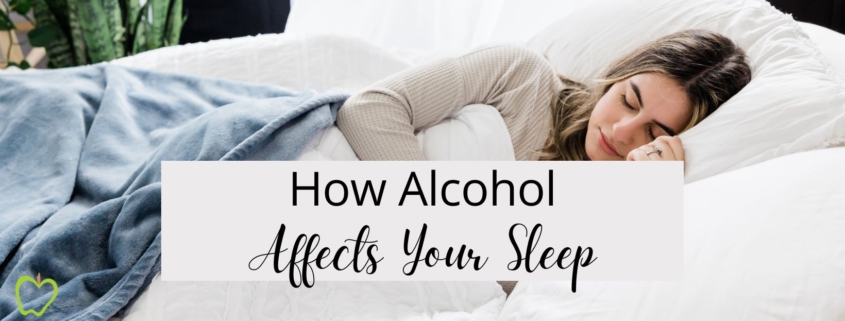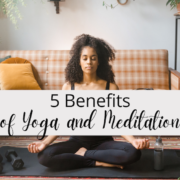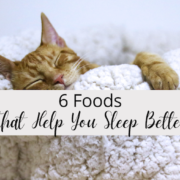How Alcohol Affects Your Sleep
I know many who enjoy an alcoholic beverage at the end of a busy day. It may be a regular habit or an occasional one, but they use it to wind down. And then there are days of celebration when there may be even more alcohol involved. If you enjoy an alcoholic beverage to wind down, have you ever considered how alcohol affects your sleep?
Alcohol Causes Dehydration
Moved When you have alcohol – whether wine, beer, or other spirits – there are numerous effects on your body. You may be thinking of the outward signs that are familiar, but there are many more.
Alcohol is a diuretic, meaning it dehydrates your body. Many don’t realize that it is this diuretic effect that leads to the hangover and achy muscles that some experience.
Our bodies don’t like to be dehydrated. Not only is the body lacking essential water, but also electrolytes, which are key for moving water in and out of our cells. Loss of electrolytes usually involves depletion of magnesium which can make it difficult to relax and go to sleep. It also may contribute to waking up with a leg cramp or charley horse soon after going to sleep.
Dehydration also raises cortisol, which leads to interrupted sleep because cortisol competes on many levels with melatonin. Your body is quite good at adapting to the environment in which you ask it to thrive.
If you are primarily in fight or flight mode, your body will minimize melatonin to help you be vigilant for the next fight scenario. Yet when you manage to quench the stress and relax, cortisol will drop and melatonin will surge to carry you into deep, restful sleep.
Depletion Of Nutrients
Beyond the diuretic effect of alcohol, its acetaldehyde metabolites are quite toxic to the body. They can damage your DNA, putting you at greater risk for cancer. As your body responds to detox this metabolite, it uses up a lot of Thiamin (Vitamin B1).
Thiamin is also active in supporting the energy-producing mitochondria in your cells. Consuming several alcoholic beverages will limit the Thiamin available for producing energy and allow lactic acid to build up.
This is another cause of muscle spasms or a charley horse in the calves. If this happens often, it would be good to supplement magnesium and B1 or a B Complex.
Potential Of Overeating
Have you ever had a satisfying meal with friends and then decided to stop at a bar for a drink later in the evening? One or two drinks later, neurons in your hypothalamus will begin to stimulate the feelings of starvation.
In response, you order bar food. Not just peanuts, but potato skins or nachos or onion rings – foods that appeal because your body thinks it is starving.
Have you ever tried to sleep when you have overeaten? It doesn’t work because digestion prompts glandular activity and muscle contractions that keep your body from truly relaxing. Some manage to fall asleep, but while sleeping the spike in blood sugar caused by the bar food shifts to a crash.
Your body will seek to rescue itself from the risk of low blood sugar with a surge of cortisol. If this doesn’t do the trick, you will get a pop of adrenaline that ensures you wake up to eat.
Got Monkey Mind?
I have had clients who reported feeling nice and relaxed after a drink or two, went to sleep easily, and then were wide awake a few hours later. If you’ve experienced this, you know how frustrating it is. Though this could be due to blood sugar as I noted above, it may have to do with GABA and Glutamate balance in the brain.
You’ve likely heard of GABA. It’s the most prevalent inhibitory neurotransmitter, while Glutamate is the most prevalent stimulatory neurotransmitter. These are yin and yang in the neurotransmitter world. Your body is always shifting the balance between them, depending on what you need to respond to in your life.
Alcohol naturally increases the action of GABA, letting us feel more relaxed and ready to sleep. In the person who enjoys one or two glasses a week, alcohol can boost this beneficial action.
But when you drink more, the GABA preference can expire followed by a rebound effect. This is when Glutamate can surge and the mind will be energized, especially for the person who is already stressed.
In this situation, there is an amino acid supplement that can protect you from the Glutamate surge – Taurine. It is also quite helpful at times when you recognize your stress levels are high and you can’t control the external contributors.
One Client’s Story
I had a client who had to travel 3 hours away every other week to help her parents. They had regular caregivers, and my client would spend a few days restocking the kitchen, updating prescriptions, and taking them to appointments.
By the end of each trip, she was overwhelmed, until I introduced her to Taurine. She started taking it daily two days before each trip and until they returned home and reported that it took the edge off.
There’s nothing wrong with enjoying an alcoholic beverage on occasion. It can be part of a celebration or just an indulgence for yourself. If you have found that doing so affected your sleep, I hope that you have gleaned some ideas for supporting your body to handle its effects better.
If you have further questions, schedule a call with me and we can talk about what else may be at play.










